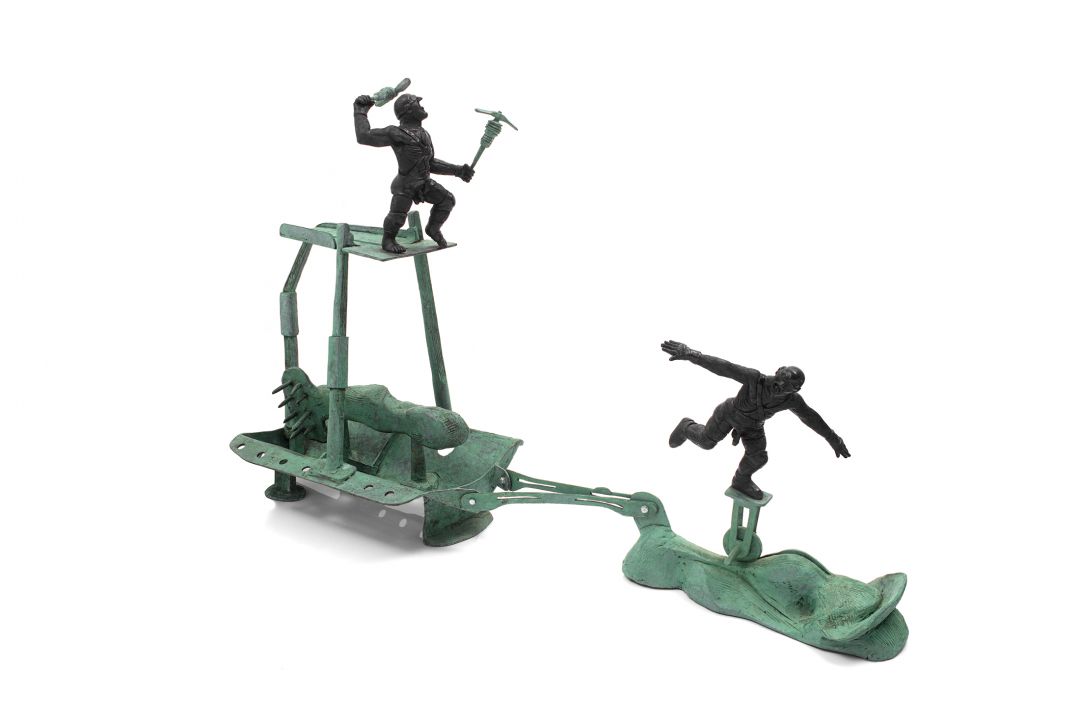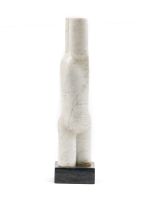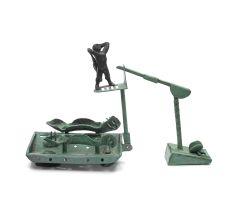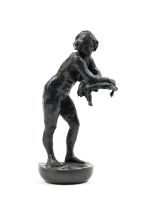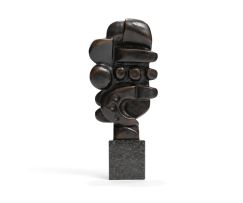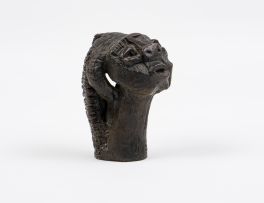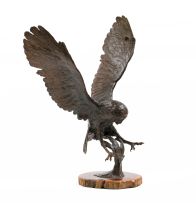19th century, Modern, Post-War, Contemporary Art and Decorative Arts
Online-Only Auction, 8 - 15 July 2019
Sculpture
About this Item
signed with the artist's initials, dated 1994 and numbered 1/1
Notes
David Brown is best known for his metal sculptures of human figures orchestrated into allegorical tableaus. Suggestive of carnivals and ritualised combat, his speculative scenes offer barbed commentary on late-apartheid South African life. Brown's dystopian vision, which he elaborated with anachronistic fashions and analogue technologies, is in the current vernacular pure steampunk. A graduate of the Michaelis School of Fine Art, where he studied design and photography, Brown was persuaded to pursue sculpture in 1975 by his father-in-law, artist Cecil Skotnes. He initially produced wooden totems, but in 1980 exhibited dogs carved from Jarrah, an Australian hardwood, clothed with metal jackets. Brown started to work in bronze in 1984. These three lots are broadly related to the figurative allegories Brown developed in his series Procession (1985) and Voyages (1989), both of which presented elaborate processional scenes. Voyages introduced the ship as a transport vehicle and featured muscular figures, a mix of torturers and the doomed alike. Brown drew inspiration for these dystopian allegories from the scenes he observed at his Woodstock studio, from which he witnessed the demolition of District Six and often saw camouflaged policemen gather before their sorties into townships with their armoured vehicles. The three lots on offer are closely linked in concept to the work Brown created for his series Dogwatch (1993), life-size sculptures made of cor-ten steel, stainless, copper and bronze. The muscular figures reflected Brown's interest in the 'macho bravado' and camp theatrics of professional wrestling, which he perceived as a 'microcosm of the brutal, oppressive system we lived under'. The goggled men wielding propellers atop scaffolding also appear in his series Dialogue at the Dogwatch (1995), a private commission of life-size sculptures for Hennerton House, England, which was subsequently donated to the University of Cape Town.
Sean O'Toole
